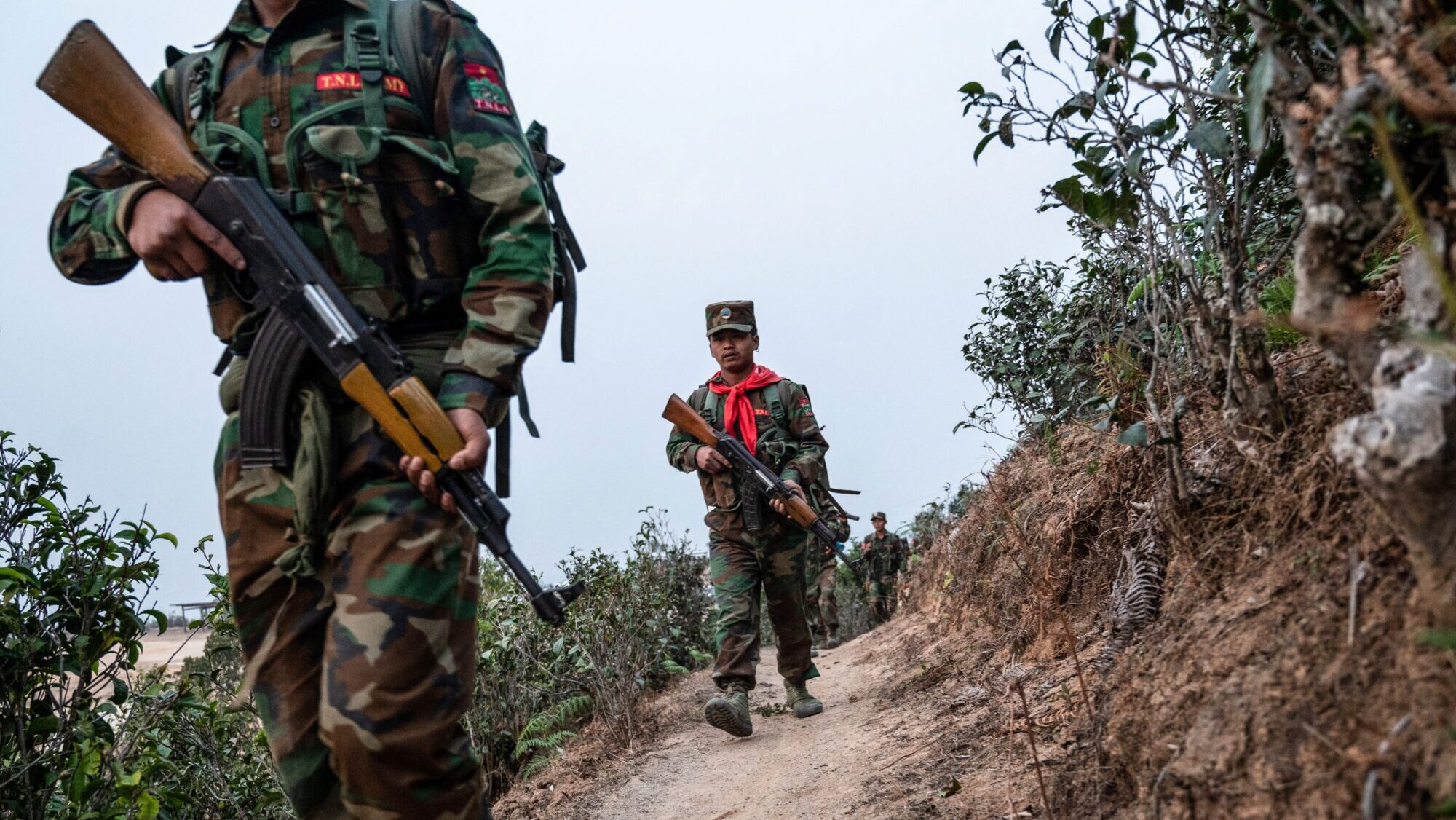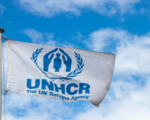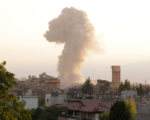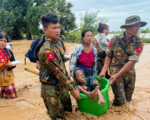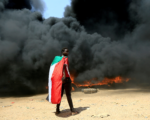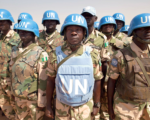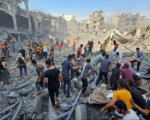Rebel groups in Myanmar have rejected a peace offer from the ruling junta, which has faced significant battlefield defeats and defections during a civil war that has raged for over three years. This marks the junta’s first peace overture since seizing power in a 2021 coup, and it follows the collapse of a China-brokered ceasefire in northern Shan state.
The military called for communication with ethnic armed groups and “terrorist insurgent groups” to politically resolve ongoing conflicts, while also inviting them to join elections scheduled for next year. However, the exiled National Unity Government (NUG) dismissed the offer, stating the junta has no legitimate authority to hold an election.
This offer of peace comes as the junta struggles to maintain control, with reports suggesting it now holds less than half of Myanmar’s territories. In June, a coalition of three ethnic armies launched an offensive, seizing key territory along a highway that connects to China’s Yunnan province. The renewed fighting in Shan state threatens China’s strategic plans to connect its southwestern regions to the Indian Ocean through Myanmar. It is believed that China’s top diplomat, Wang Yi, warned Myanmar’s military leader Min Aung Hlaing of the conflict’s implications during a recent visit.
In the junta’s statement on Thursday, it urged armed groups to participate in “party politics and elections” to achieve lasting peace. The military acknowledged that the conflict has severely damaged the country, leading to loss of human life, destruction of infrastructure, and stalling development.
Rebel groups remain skeptical. The Karen National Union (KNU), which has been fighting the military for greater autonomy along the Thai border for decades, set clear conditions for talks. KNU spokesman Padoh Saw Taw Nee stated that discussions would only be possible if the military agreed to several key objectives: the exclusion of the military from future political roles, the creation of a federal democratic constitution, and accountability for war crimes and crimes against humanity.
Without these commitments, the KNU intends to maintain pressure on the junta both politically and militarily. Maung Saungkha, leader of the Bamar People’s Liberation Army, rejected the peace offer outright, saying his group is “not interested.” Other rebel leaders expressed their distrust, with Soe Thu Ya Zaw of the Mandalay People’s Defense Forces likening the junta’s offer to a deceptive act, stating, “They are hanging goat’s heads but selling dog meat.”
The junta’s seizure of power in 2021, which toppled Myanmar’s democratically-elected government, was met with nationwide protests, many of which were violently suppressed. This prompted ethnic armed groups and anti-coup militias to unite against the military, plunging the country into a protracted civil war.
According to the United Nations, the conflict has killed over 50,000 people and displaced more than two million since the coup. Last week, the UN issued a grim warning that Myanmar was “sinking into an abyss of human suffering.” Survivors have reported severe human rights abuses, including torture by military forces, with accounts of victims being burned with petrol and forced to drink urine.


